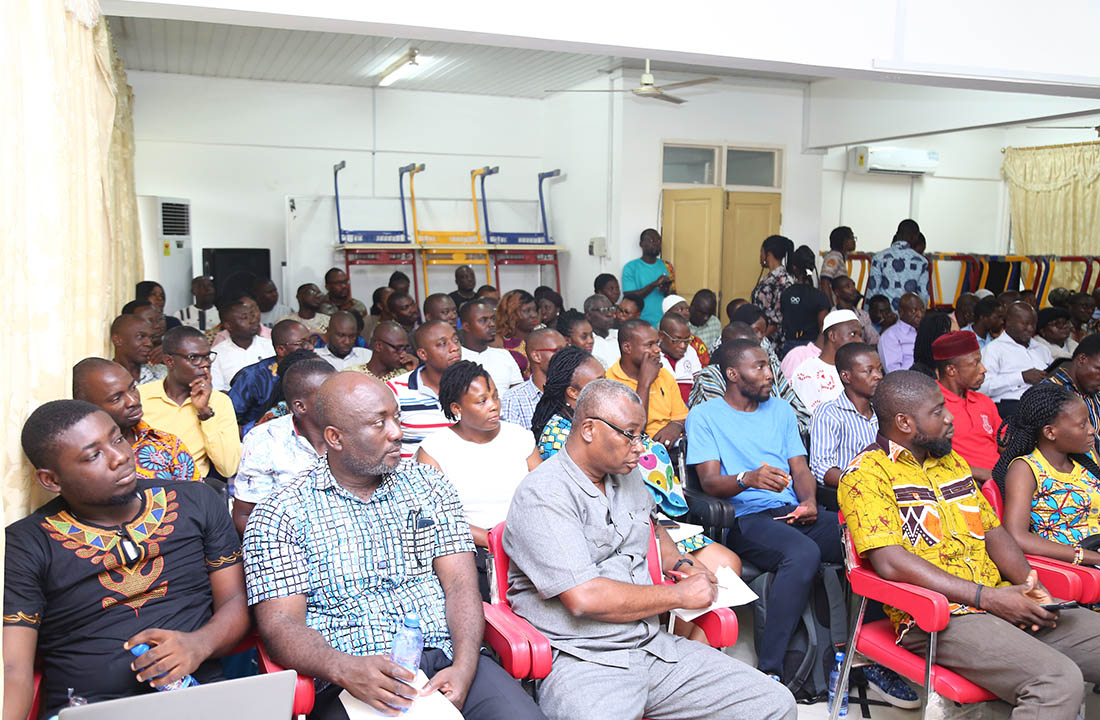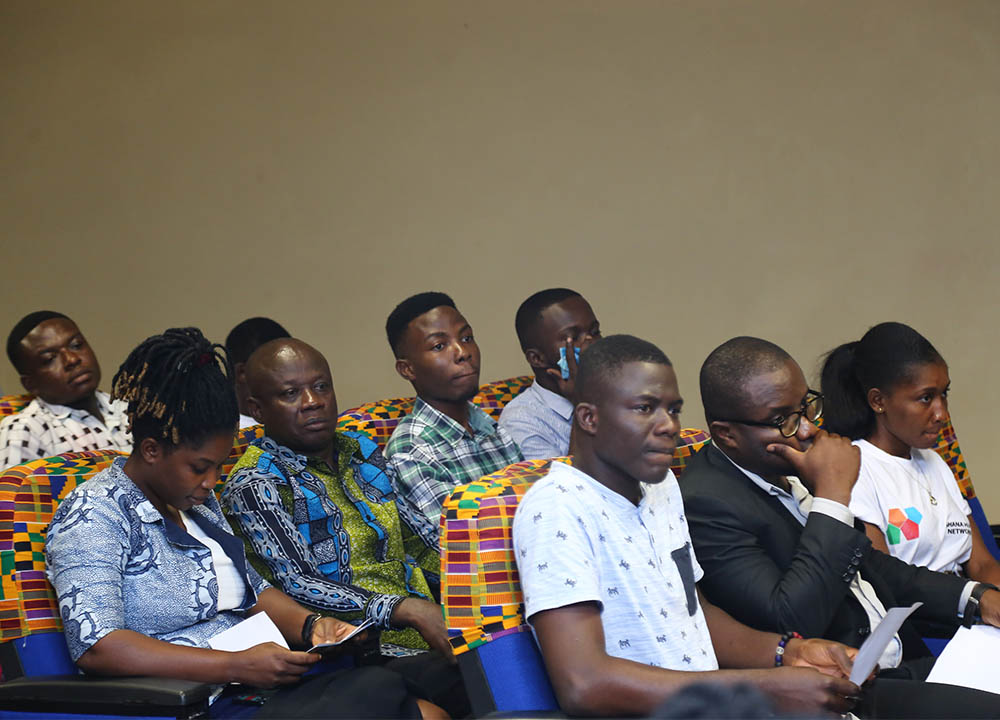Fresh students admitted to pursue various programmes at the undergraduate and postgraduate levels for the 2019/2020 academic year have been taken through a one-week orientation programme.
The orientation programme was to introduce the fresh students to rules, regulations and policies Colleges, Faculties/Schools and Departments as well as managing their expectations as they begin their academic journey at UCC.
UCC is the University of Competitive Choice
Speaking at the function, the Director of Academic Affairs, Mr. Jeff Onyame who represented the Registrar, Mr. John Kofi Nyan, congratulated the students on their successful admission to UCC. “UCC is the University of Competitive Choice and only the lazy will be discouraged to learn at UCC” he added. He, therefore, assured that UCC provided its students with critical and independent thought to be ahead of their peers from other institutions.
Mr. Onyame advised the students to take a keen interest in all the sessions outlined for the orientation in order to get the right information about academic and social lives on campus. “The orientation programme will prepare you to face the challenges you are likely to encounter as a fresh student of this University. Do not rely on your friend’s version of the policies, rules and regulations and other vital information about the University,” he advised the freshers.
Choices Have Consequences
For his part, the Dean of Students, Prof. Eugene K. M. Darteh, informed the students that the University offered enough freedom which came with challenges. “Engage in activities that will make your lives better; be responsible and don’t forget why you are here” he advised.
Prof. Darteh reminded the students that they would be individually held responsible for their actions since “choices have consequences”.
The Dean of Students entreated the students to be security conscious and be responsible for their personal safety on campus. “Though the University has security personnel to provide security to the entire University community, students should also play their part and ensure they take their personal security in their hands,” he cautioned.
Be abreast of Happenings on Campus
Prof. Darteh urged the students to read notices, Students’ Handbook and other policies of the University. He further entreated them to visit the University website and also listen to the Campus Radio that is ATL FM to be abreast of happenings on campus. He asked the students to visit the Counselling Centre anytime they encountered difficulties with their academic or social life on campus adding that “suicide should not be an option”. He said the Office of the Dean of Students’ was always opened to attend the needs of students.
Speakers at the Orientation Programme
Other speakers for the orientation were the Director of Academic Planning and Quality Assurance, Prof. Awabil who spoke about Quality Assurance in UCC; the Head of Communicative Skills, Dr. Eric Opoku Mensah gave an overview of Communicative Skills whiles the Head of Electricity Section, Mr. J. W. Ansah spoke about Energy Conservation.
The Head of the Chaplaincy Unit, Rev. Prof. Seth Asare-Danso gave a presentation about religious service and the various worship places for the various groups. There was a presentation and demonstration of fire safety by ADO 01 Twumasi Ampofo and STN 01 J. W. Mensah of the UCC Fire Service.
As part of the itinerary for the orientation ceremony, the students were exposed to the programmes of study in their colleges, faculties/schools and departments and introduced to the facilities and landmarks. They were also taken through campus security, sporting activities, anger management, relationship tidbits, counselling services, disability issues, registration issues, library and health services.
The programme was chaired by the Pro Vice-Chancellor, Prof. Dora Francisca Edu-Buandoh.





